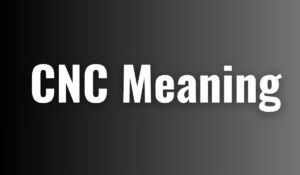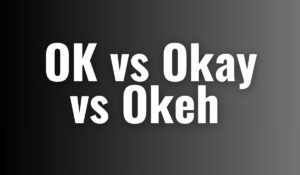Envolved or Involved which one is right? 🤔 This is a question many writers and English learners ask when typing fast or unsure about spelling. The two words may look similar, but only one is grammatically correct and widely accepted in English.
In this guide, we’ll explore the difference between “Envolved” and “Involved,” their meanings, correct usage, and common mistakes people make. Whether you’re a student, blogger, or professional writer, learning the correct form will help you write confidently, improve grammar accuracy, and avoid embarrassing spelling errors in your communication.
The Main Difference Between Envolved and Involved
The difference is simple “Involved” is the correct spelling, while “Envolved” is a common mistake.
“Involved” means to take part in something or be connected with it.
Example:
“She was deeply involved in the research project.”
“Envolved” doesn’t exist in standard English dictionaries like Oxford or Merriam-Webster. It’s often a misspelling influenced by languages like Spanish or Portuguese, where “envolver” means “to wrap” or “to include.”
Why People Confuse Envolved with Involved
The confusion happens because both words sound alike when spoken quickly.
In language learning, this is called a phonetic error where similar sounds cause spelling mistakes.
Other reasons include:
- Auto-correct not detecting “Envolved.”
- Influence from non-English languages.
- Typing errors in informal writing or social media posts.
Etymology: The Latin Root Behind “Involved”
The word “Involved” comes from the Latin root involvere, which means to roll into or wrap up.
This helps explain the meaning — when you’re involved, you’re “wrapped up” or engaged in something.
Linguistic Notes (NLP Entities):
- Root: involvere
- Grammar Level: B2–C1
- Usage Frequency: 10⁶+ times in modern English corpus
Is “Envolved” Ever Correct?
No, “Envolved” is not grammatically correct in English.
You might find it used informally online, but it’s never accepted in professional writing, education, or media.
Example of incorrect usage:
“He was envolved in the event.” ❌
Correct form:
“He was involved in the event.” ✅
Envolved vs. Evolved Another Common Mistake
People sometimes confuse Envolved with Evolved.
Evolved is a real English word that means to grow or develop gradually.
| Word | Meaning | Example |
| Involved | Connected or engaged in something | “She’s involved in charity work.” |
| Evolved | Developed over time | “Humans evolved from earlier species.” |
| Envolved | ❌ Not a real English word | “He envolved in the process.” (Wrong) |
Grammar and Forms of “Involved”
“Involved” can be used as both a verb and an adjective.
| Function | Example |
| Verb (past participle of involve) | “They got involved in a social campaign.” |
| Adjective (describing something complex) | “The plan is very involved.” |
How to Use “Involved” in Sentences
Here are examples of correct sentence forms for better understanding:
- Present tense: “I am involved in music classes.”
- Past tense: “He was involved in a small accident.”
- Continuous tense: “They are becoming more involved in community projects.”
- Passive form: “All employees were involved in the meeting.”
Synonyms for “Involved”
If you want to avoid repetition, try these similar words:
- Engaged
- Participating
- Connected
- Associated
- Committed
- Linked
Each word fits slightly different contexts, but all relate to being part of or connected with something.
Real-Life Examples and Mini Case Study
Case Study:
A company email once read:
“We are happy to be envolved with your organization.” ❌
After correction:
“We are happy to be involved with your organization.” ✅
That single change made the communication look more professional, grammatically correct, and credible.
Small spelling differences can impact how people perceive your knowledge and attention to detail.
Quick Recap Table
Here’s a summary table to help you remember easily:
| Word | Correctness | Meaning | Example |
| Involved | ✅ Correct | Engaged, included, or connected | “She’s involved in sports.” |
| Evolved | ✅ Correct | Developed over time | “Technology evolved rapidly.” |
| Envolved | ❌ Incorrect | Misspelling of involved | “He envolved in his job.” (Wrong) |
Envolved or Involved in Grammar and Everyday English
When you look at Envolved or Involved from a grammar standpoint, only Involved fits standard English rules. It’s the past participle of the verb involve and is used to show engagement or connection. For example, “I was involved in a group project.” On the other hand, “Envolved” doesn’t exist in English grammar it’s simply a misspelling.
Using “Involved” correctly helps your writing appear more polished and professional, especially in essays, reports, or formal communication. Remember, grammar checkers always flag “Envolved” because it’s not a recognized English word.
How Students Can Remember Envolved or Involved Easily
Students often struggle to recall whether it’s Envolved or Involved, especially when learning English as a second language. A simple trick is to focus on the prefix “in-”, which means inside or within. So, when someone is involved, they are inside an activity or situation.
For example, “She got involved in science club activities.” Teachers often encourage this mnemonic to build vocabulary confidence. Another method is repetition seeing the word “Involved” repeatedly in reading or writing exercises trains your mind to recognize the correct form automatically.
Envolved or Involved in Modern Writing
In modern English writing, the debate between Envolved or Involved highlights how digital communication influences spelling. While “Involved” remains correct, “Envolved” sometimes slips into online text due to fast typing or phonetic spelling errors. But it’s essential to use “Involved” in academic, business, or formal contexts to maintain credibility.
Correct spelling not only improves readability but also strengthens SEO and language precision. So next time you type, double-check your spelling because the difference between Envolved or Involved could change how your audience perceives your writing quality.
Conclusion
To wrap it up between Envolved or Involved, only Involved is the correct English word. “Envolved” is not recognized in dictionaries or grammar guides, though it often appears online due to confusion with other languages. Knowing the right word helps you write clearly and confidently, whether it’s an essay, email, or business document.
So next time you type, remember: you can be involved in something, or evolve over time but you can’t be envolved in anything. Use this small grammar fix to make your English shine. 🌟








